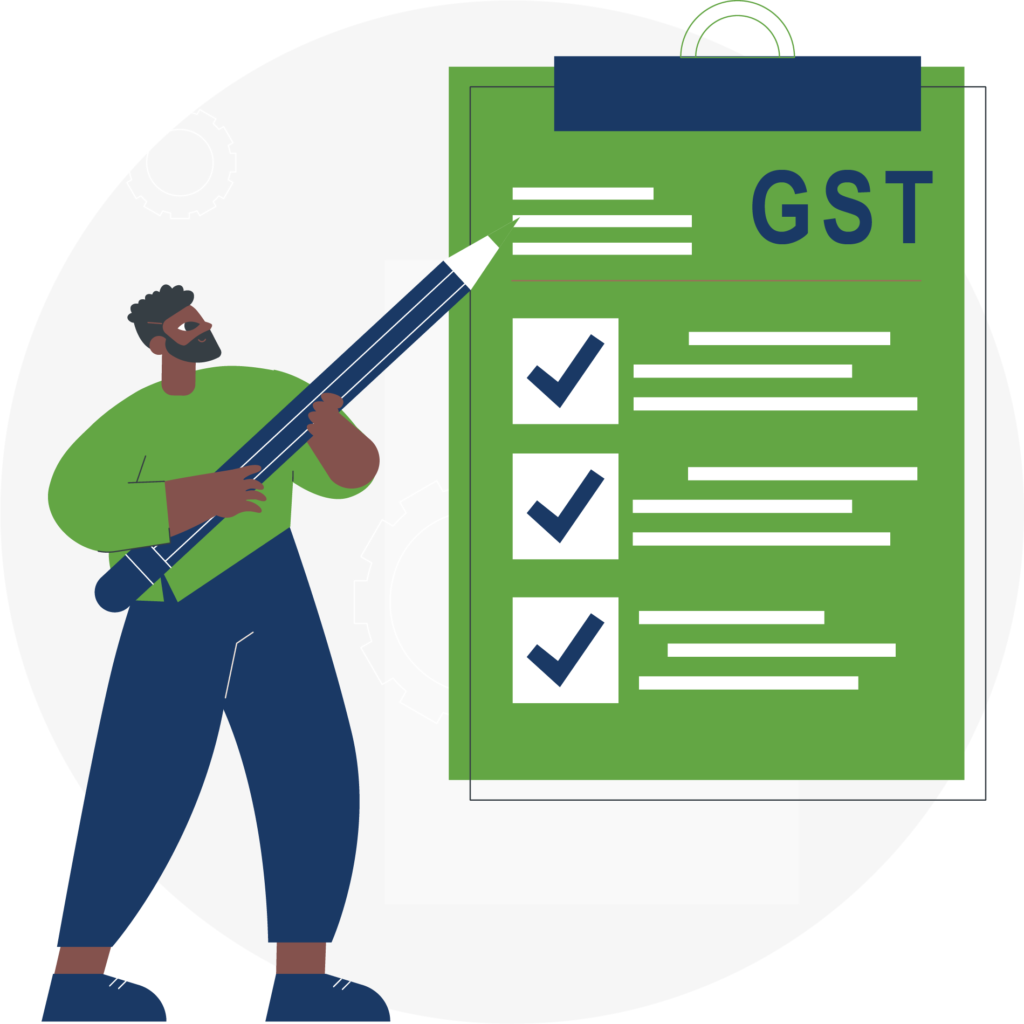GST Registration
Starting @2500/-
GST Registration in 8-9 business days
Enjoy hassle – free processing as C M Patel and company’s Team lays the groundwork for your business.
List of Documents Required For GST Registration
Private Limited Company
- Certificate Of Incorporation
- PAN Card of All Directors and Company
- Articles of Association , (AOA)
- Memorandum of Association , (MOA)
- Resolution signed by the Board members
- Aadhaar Card (All Directors)
- Photo – Passport size (All Directors)
- Contact No and Email id of All Directors
- Rent Agreement/ Consent Letter Notarized (Shop/office)
- Electricity Bill & Municipal Tax Receipt Latest
- Goods or Services details of the Firm
- Authorized Signatory of One Director.
Partnership firm/ LLP
- PAN card of all partners (including managing partner and authorized signatory)
- Copy of partnership deed/LLP Deed
- Partners' Names & Address Proof
- Photograph of all partners
- Aadhar card of authorised signatory
- Rent Agreement/ Consent Letter Notarized (Shop/office)
- Electricity Bill & Municipal Tax Receipt Latest
- Goods or Services details of the Firm
- Authorized Signatory of One Director.
Individual / Proprietorship
- Business name
- PAN Card (Proprietor)
- Aadhaar Card (Proprietor)
- Photo – Passport size (Proprietor)
- Contact No and Email id
- Rent Agreement/ Consent Letter Notarized (Shop/office)
- Electricity Bill & Municipal Tax Receipt Latest
- Goods or Services details of the Firm
Eligibility For GST Registration

Upon Reaching Turnover
of 20 Lakh :
If your current supply of goods or services is over Rs. 20 lakh, you need to obtain GST Registration (if your business operates exclusively in the North Eastern states, Rs. 10 lakh).

Inter-state Sales or Service Provider :
Anyone supplying goods or services to another state, need to apply for GST regardless of turnover. Even online service provider serving customers in another State will instantly attract GST registration.

E - commerce operator :
Who owns , operates or manages digital Platform for E - commerce. Eg: Flipkart, Amazon , meesho etc.

Vendors Selling through
E - Commerce Portals :
Person who supply goods or services through e - commerce sites.

Non - Resident & Importers :
Any non resident person company supplying goods or services in india need to take the registration regardless of turnover.

Supplier of Online Information :
Any Person Supplying online information and database services from outside India to a person in India need to register irrespective of turnover.
Who Needs a GST Registration Services ?
- Any individual or business entity that carries out taxable supplies of goods or services.
- Annual turnover of the business exceeds the prescribed threshold limit (currently ₹20 lakhs for most businesses).
- E-commerce operators that facilitate the supply of goods and services through their platform.
- Non-resident taxable persons who occasionally supply goods or services in India.
- Businesses that are involved in inter-state supply of goods or services.
- Input service distributors who distribute input tax credit to their branches or units.
- Casual taxable persons who supply goods or services occasionally in India.
- Businesses that were previously registered under the old tax regime (VAT, Service Tax, etc.) and have migrated to GST.


GST Return Filing
GST return filing is the process of submitting the details of sales, purchases, and taxes collected and paid by a registered taxpayer to the Government. In India, GST return filing is mandatory for all registered taxpayers who are registered under GST, regardless of whether they have made any sales or purchases during the period for which the return is being filed.
- Output GST (On Sales)
- Sales
- Input Tax Credit (GST Paid on Purchase)
- Purchases
DIFFERENCE BETWEEN CGST, SGST and IGST
Central GST (CGST)
- CGST is the tax levied by the central government on the intra-state supply of goods and services.
- The revenue collected from CGST goes to the central government.
- It replaces taxes like Central Excise Duty, Service Tax, etc., which were levied by the central government before the implementation of GST.
State GST (SGST)
- SGST is the tax levied by the state governments on the intra-state supply of goods and services.
- The revenue collected from SGST goes to the state government.
- It replaces taxes like VAT, Sales Tax, etc., which were levied by the state governments before GST.
Integrated GST (IGST)
- IGST is applicable to the inter-state supply of goods and services in India.
- It is levied by the central government but is intended for both the central and state governments.
- When goods or services move from one state to another, IGST is applied. The tax revenue collected is divided between the central and state governments based on predetermined formulas.
- IGST helps in ensuring seamless interstate trade and prevents the cascading effect of taxes.
